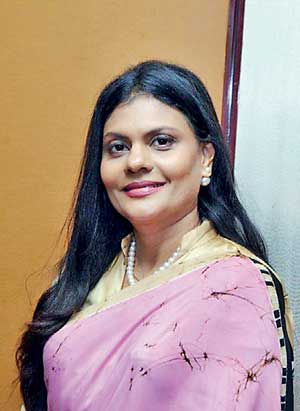11 Oct 2017 - {{hitsCtrl.values.hits}}
The Employers’ Federation of Ceylon (EFC) has partnered with the Women’s Chamber of Industry and Commerce (WCIC) in lobbying with the government and other relevant stakeholders for labour reforms to enhance women’s participation in the labour force.

“We have tabled several reforms in this regard and are working very closely with the EFC in formulating a methodology to translate these reforms to policy,” noted Women’s Chamber of Industry and Commerce Immediate Past Chairperson and SAARC Chamber Women Entrepreneurs Council Chairperson Rifa Musthapha.
The EFC-WCIC partnership is also ambitious to introduce these reforms to the rest of the SAARC countries through SAARC Chamber Women Entrepreneurs Council (SEWEC) of which the WCIC holds the chair for 2017/2019.
Technology and increased connectivity has ensured that flexi hours are a viable option for companies today creating a win-win situation for female employees as well as employers. “Flexi hours allow employees to effectively meet their family and their personal commitments, driving them to be more efficient and motivated to work. It is especially a boon for working mothers with young children or with aged parents,” asserted Musthapha. Moreover, such arrangements enable employees to work at a time of the day when they are at their productive peak and those with a long commute can plan their work hours to avoid the stress of commuting during rush hours, she said. The WCIC, as its Immediate Past Chairperson explains, has already submitted a proposal to introduce flexi working hours for women to be made mandatory at the work place. Some of the institutions have introduced this but it has not been incorporated as regulation. We have also submitted a proposal to allocate a specified percentage of government procurement/contracts to women entrepreneurs starting from local government level. The move hopes to increase women’s participation in the formal sectors. This model was followed in the US and we do hope it will be looked at positively in Sri Lanka.
Making the public and private sector ‘attractive’ for women to get into the work force is also imperative, observes Musthapha. Companies which establish crèches and day care centers should be offered incentives, so that women are more driven to be
employed, she said.
Introducing a minimum quota for women to fill local government councils is also a step in the right direction in achieving equality for women and encouraging more women at work, said Musthapha. “Although we have 52 percent female population, representation in Local government bodies is less than two percent. The introduction of the minimum quota will be a first step in increasing women’s participation in important leadership and decision making roles in the country,”
she noted.
The EFC, as its Director General Kanishka Weerasinghe asserts, has long lobbied for the removal of all restrictions that hinder participation of women in the workforce. These include the lifting of prohibition/limitations placed on women working during the night, creating an environment for women to work part-time as well as making use of tele-working options such as homework and remote working options and working around the concept of a virtual office. “The emergence of the ‘gig economy’ and the ‘diverse’ opportunities that have followed appear to be preferred by women.
Moreover, we have also lobbied for changes in law that would facilitate a ‘work-life balance’ and would also ensure the provision of facilities such as transport, rest rooms, canteen facilities, and more, in order to encourage more women at work,” noted the EFC Chief.
01 Jan 2025 13 minute ago
01 Jan 2025 26 minute ago
01 Jan 2025 52 minute ago
01 Jan 2025 1 hours ago
01 Jan 2025 2 hours ago